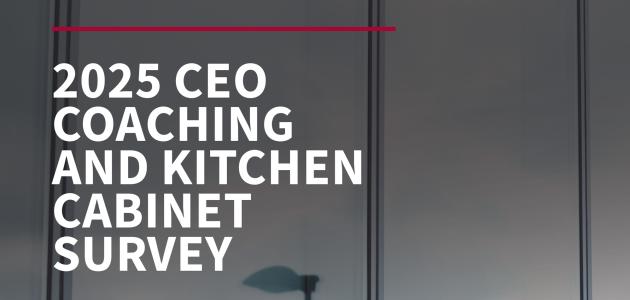In this week’s edition, members of the House Select Committee on Strategic Competition between the United States and the Chinese Communist Party participate in a TTX about the invasion of Taiwan, the US and Republic of Korea commit to cooperation in quantum information science and technology, and the US government reveals details at RSA about DoD-DHS collaboration in response to previous hacking activity. Additionally, VCs come together to tackle climate tech and federal agencies pledge to apply existing regulations to AI.
Industrial Policy & International Security
Bad Blood: the TTX for the House Select Committee on Strategic Competition Between the United States and the Chinese Communist Party (CCP) | Center for a New American Security
Last week, the Center for a New American Security’s (CNAS) Defense Program and Gaming Lab ran a tabletop exercise (TTX) with members of the House Select Committee on Strategic Competition between the United States and the Chinese Communist Party (CCP) examining how the US may respond to an invasion of Taiwan. The goal of the TTX was to illuminate potential Chinese decisions for committee members and identify options to strengthen US deterrence and uphold a free and open Indo-Pacific. Neither the Red (CCP) nor Blue (US) teams were able to declare a clear victory at the end of game play, which was a departure from similar TTXs but demonstrated the enormous potential human, economic, and military costs of an extended conflict. After analyzing game play, CNAS experts recommended that Congress take action to “strengthen our munitions stockpiles, maximize production of advanced air and undersea capabilities, and make investments in a distributed and hardened posture…to withstand Chinese missile attacks” in the FY 2024 National Defense Authorization Act. Further study of economic warfare in pre- and mid-conflict phases and the implications of protracted war is necessary to inform additional recommendations for Congressional action.
Joint Statement of the United States of America and Republic of Korea on Cooperation in Quantum Information Science and Technologies | US Department of State
This week, Dr. Arati Prabhakar, Director of the White House Office of Science and Technology Policy and Chief Science Advisor to President Biden, and Dr. Lee Jong-ho, Minister for Science and Information and Communication Technologies for the Republic of Korea, met to discuss bilateral commitment to cooperation in quantum information science and technology (QIST). The US and ROK governments released a joint statement expressing a shared vision of QIST and building upon the 1999 Agreement Relating to Scientific and Technical Cooperation between the Government of the United States of America and the Government of the Republic of Korea. Cooperation between the US and ROK will involve interactions between government, academia, and business; opportunities to strengthen the global market and supply chain for QIST research and development; international standardization and technology protection; and joint research and personnel exchanges. The two nations affirmed that QIST cooperation will be guided by shared values and the desire to solve challenges such as “global health, climate change, and efficient resource use.”
US Regulation
Can existing laws regulate AI? The federal government and experts say yes | Fast Company
Earlier this week, the Federal Trade Commission, Department of Justice, Consumer Financial Protection Bureau, and Equal Employment Opportunity Commission pledged to apply existing laws and regulations to AI tools instead of developing custom frameworks. University of Washington professor and large language model expert Emily M. Bender points out that, “there’s a narrative out there that because technology is moving too fast, it can’t possibly be regulated.” This sentiment was echoed by FTC Chair Lina Khan: “Claims of innovation must not be cover for lawbreaking.” This joint pledge follows a demand from tech industry leaders to slow down the development of advanced AI tools because the technology is too complex to control. However, critics argue that just because technology is new does not mean it is exempt from existing laws about fraud or discrimination. Moreover, overly precise legislation is more likely to be overcome by the speed of innovation. However, effective regulation of AI through existing and new tools alike will require more transparency about when and how organizations use AI.
Innovation
The Israeli plan to fit a fusion reactor into a container | BBC
Late last year, the US National Ignition Facility conducted the first controlled fusion experiment. Israel’s NT-Tao is part of a small group of private startups attempting to build a commercial fusion reactor. While there are many challenges to overcome before nuclear fusion is scalable, researchers at NT-Tao are seeking to develop a modular reactor approximately the size of a shipping container. To do so, they are refining magnetic confinement technologies to contain hydrogen isotopes that have been heated until they break apart into plasma. NT-Tao is combining both tokamak and stellarator approaches, which leverage the shape of the magnetic field and the internal pathway of the plasma in order to achieve higher plasma density. While it is likely that a fusion power plant will be developed before smaller reactors like NT-Tao’s arrive on the market, the company foresees applications in places that require higher degrees of maneuverability. High-profile investors like Honda are betting on NT-Tao to support charging stations for growing fleets of electrified vehicles.
Cyber
Iran gained access to election results website in 2020, military reveals | The Washington Post
At the annual RSA security conference on Monday, officials from US Cyber Command (USCYBERCOM) and the Cybersecurity and Infrastructure Security Agency (CISA) revealed that an Iranian hacking group infiltrated a local government website in 2020 that reported that year’s election results. USCYBERCOM National Mission Force commander Major General William J. Hartman said the group, known as Pioneer Kitten, could have tampered with the public-facing website to “make it look like the votes had been tampered with.” However, the intrusion was detected and disrupted in collaboration with the Department of Homeland Security before any damage was done. Officials shared that the hackers did not have access to the votes or counting machines. The disclosure was made alongside other newly declassified information about SolarWinds and Microsoft hacks and underscored deepening collaboration between USCYBERCOM and CISA.
State & Local Tech Ecosystems
Big-time VCs link arms for climate coalition | TechCrunch
Approximately two-dozen well-known tech investors are joining forces to establish the Venture Climate Alliance (VCA) in an effort to tackle climate change. The coalition includes Tiger Global and Union Square Ventures alongside more specialized firms like S2G, which focuses on food tech, and Fifth Wall, which leans into buildings-focused climate tech. VCA has pledged that their own firms will meet net zero or negative carbon emissions by the end of the decade and will encourage their portfolio companies to set net-zero targets for 2050. VCA aims to set up guidelines and best practices in May. While VCA signals that climate tech is still important to investors after a decline in funding over the first quarter of 2023, net-zero emissions strategies face some skepticism, especially when they rely on carbon offsets. VCA members are expected to “report transparently on their progress over time.”
Democracy Online
US Supreme Court to decide if public officials can block critics on social media | Reuters
The US Supreme Court is preparing to weigh in on whether the First Amendment applies to public officials’ social media accounts. The court will hear two appeals in which members of the public have contested whether a government official may block critics on platforms like Facebook and Twitter. In one case, a lower court ruled in favor of school parents who sued Southern California school board members for blocking them on social media. However, the lower court ruled in favor of a Michigan city official in the second case; the official was sued by a local man after he blocked him on Facebook for criticizing the government’s COVID-19 response. In both cases, the defendants identified their public roles in their social media profiles. The Supreme Court must decide whether this type of social media activity equates with governmental action and should be considered as unlawful government regulation of speech. In 2021, after President Trump had left office, the justices threw out a lower court decision that he had violated free speech rights by blocking critics on Twitter.














